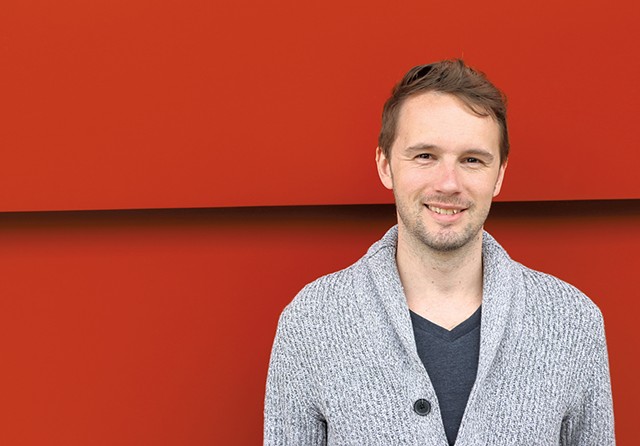
- Courtesy
- Josh Hallmark
On June 8, 2011, a quiet couple named Bill and Lorraine Currier disappeared from their home in Essex, touching off an extensive search. Among armchair detectives, speculations flew. But the eventual truth may have been stranger than anything they predicted.
About a year later, local authorities revealed that the Curriers had been victims of a killer who was in custody out of state. That same day, citing an unnamed source, WCAX identified the perpetrator as Israel Keyes of Alaska. On December 3, 2012, after Keyes' suicide in prison, authorities finally confirmed that he had confessed to the Curriers' murders while in custody for abducting and killing a young Anchorage woman. He had also spoken to the Federal Bureau of Investigation about committing other murders all over the U.S.
"The revelation raises more questions than answers, including what Keyes was doing in Vermont in the first place," Andy Bromage wrote in Seven Days at the time. Why would anyone, even a confessed serial killer, travel across the continent to target two strangers at random?
That mystery isn't so mysterious, however, to listeners of the popular podcast "True Crime Bullsh**." Since he started the podcast in 2018, Josh Hallmark, who lives just over the Vermont border in North Adams, Mass., has been on a quest to catalog all of the available information about Keyes and his crimes. The goal? To find patterns in Keyes' seemingly random movements and, ultimately, to identify more of his victims.
Hallmark, 40, a California native, said he was drawn to the Keyes case early on, when he lived in Seattle. "From a storytelling perspective, it was really fascinating, because it was the opposite narrative structure than what we're used to in true crime," he said by phone. "We knew who the killer was, but we didn't know who the victims were."
After Keyes' suicide, the FBI released dozens of hours of audio footage from his monthslong interrogation. That footage became material for Hallmark's investigation, along with thousands of pages of files he obtained through federal Freedom of Information Act requests. Piecing the clues together, he has built a timeline of Keyes' frequent and far-ranging travels, working to match the killer's movements to cases from the National Missing and Unidentified Persons System, aka NamUs.
Using this method, Hallmark established that there was nothing so mysterious about Keyes being in Essex. It was a natural stop on the drive between Constable, N.Y., where his family owned property, and another family home in Maine. The real mystery is whether, on his way from the Chicago airport to Essex via his mother's home in Indiana, Keyes might have been responsible for the disappearance of an Indiana University student named Lauren Spierer. She vanished five days before the Curriers did; the case remains unsolved.
Hallmark's work involves a lot of speculation, but he's careful to frame it as such. His approach has received kudos from law enforcement professionals, including one who was involved in the Keyes case.
Now-retired FBI agent Bobby Chacon led the dive team that discovered the remains of Keyes' known Anchorage victim in a frozen lake. Chacon, who has appeared on "True Crime Bullsh**," told Seven Days by email that Hallmark "is doing an outstanding service to the victims of Israel Keyes" with his "tireless work."
It's high praise for a podcast that seems to question its own purpose with its very title. "True crime bullshit" is a phrase that Keyes used with investigators to justify his reluctance to divulge his crimes. He feared the public's thirst for murder stories would make it impossible to shield his young daughter from the truth about him.
Since then, the popularity of true crime has only grown. And the title of Hallmark's podcast — which receives 750,000 downloads per month, he said — expresses his own complicated feelings about the genre.
Hallmark caught the podcasting bug in 2015 while traveling the country in a van with his partner. They listened to "Serial," a spin-off from the "This American Life" podcast that kicked off the true crime audio trend.
"As a writer, I really fell in love in with the medium," Hallmark said. He liked the "instant gratification" of podcasting, how the format allowed him to "write 35,000 words and put it out into the world and immediately get a response to it."
Unhappy and unemployed in New York City, where the couple eventually settled, Hallmark decided to make podcasting a career. His first show was "Our Americana," an effort to counteract the toxic atmosphere of a "hellish election" by telling "extraordinary stories in small-town America," he said.
But Hallmark also had a longtime interest in the darker subject of true crime — and a curiosity about what draws people to the genre.
"I was really naïve ... when I started," he recalled. "There was a lot of what I call 'Wikipedia true crime'" — that is, podcasts whose hosts riff on easily googled information rather than do their own detective work. He knew that "I didn't want to do that."
Initially, Hallmark wanted each episode of "True Crime Bullshi**" to be 75 percent about the Keyes case and 25 percent "interrogation" of the true crime genre itself. The first episode highlights interviews with true crime enthusiasts about what draws them to the genre.
But "people did not respond well to that," Hallmark said with a chuckle. "I got a lot of hate mail."
Over five seasons — four of them about Keyes, one about female serial killer Kelly Cochran — the show evolved from conceptual interrogation to criminal investigation.
"I never thought of the show as investigative at the beginning," Hallmark said. "It was just kind of me telling the story and looking to see if I could find out who his victims were ... Now it's me hiring experts and dive teams and going to places where [Keyes] went." The support of listeners and others, he said, gave him "the confidence ... to say, 'I'm going to turn over every stone ... to see if we can't answer some of these questions.'"
Because only three murders are officially attributed to Keyes, he's "the most terrifying serial killer you've probably never heard of," one recent clickbait headline reads.
But Hallmark comes at the case from another angle. Referring to Keyes' claim to have killed "less than 12" people, he said he's always seen it as "heartbreaking that there were at least 11 families who had no idea what had happened to their loved ones."
Connecting Keyes to any one of the vast number of missing Americans would seem impossible — if the FBI hadn't found 44 matches between image files on his computer and missing persons in the NamUs database. Some members of this group, which Hallmark calls the "NamUs 44," can be ruled out as Keyes' victims. Others can't. Hallmark has devoted exhaustive attention to likely cases, such as that of Suzanne Lyall, who disappeared from Albany, N.Y., in 1998.
He can't recall whether his first "field trip" for the podcast was to Albany or to Essex, where he retraced Keyes' steps "to get an understanding of distance and time," he said. "I remember sitting where the farmhouse [where the Curriers were murdered] once stood and realizing the gravity of what I was doing."
"True Crime Bullsh**" features frequent audio clips from the FBI interrogations of Keyes, including parts of his harrowing description of the Curriers' abduction and murder. Keyes also reveals in the clips that he came close to following the murders with a Vermont bank robbery, scoping out the town of Johnson. He changed his plans when he realized his victims' car wasn't a reliable getaway vehicle.
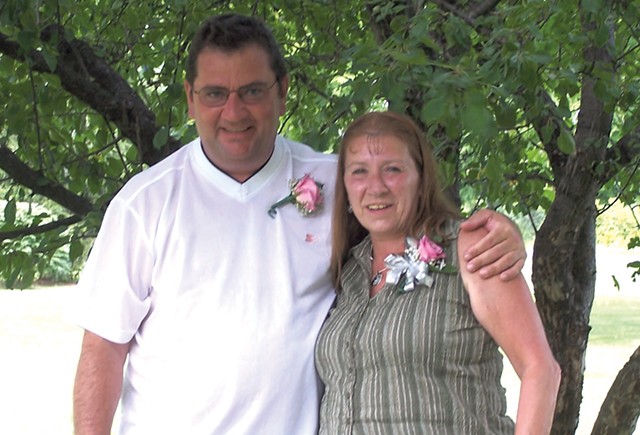
- Courtesy Of WCAX
- Bill and Lorraine Currier
Listening to those interviews is difficult. "Hearing Keyes describe these terrible details so callously just really, really messed me up," Hallmark said. "But I think it was a necessary task, because it really humanized not only [the victims] but this experience ... I wanted to approach this having humanity for everyone, including Keyes."
Hallmark has a second cousin whose brother and mother were murdered. "I often think about him and how he would want people to cover his case," he said.
He regularly consults two friends — a victims' family advocate and a prosecutor — for guidance in discussing victims and their families on the show. And he reminds his audience that "perpetrators' families are victims, as well" — particularly, in this case, Keyes' daughter, who was with him when he was arrested.
"I think about her every single time I sit down to start writing an episode," Hallmark said. "She has to live with this every day."
"True Crime Bullsh**" raises big questions about the relationship between crime and the media — not just because Hallmark uses podcasting to investigate crimes but also because of the pivotal role that the Vermont media played in the Keyes case.
In the audio files, we hear FBI agents assure Keyes that authorities in Vermont had agreed not to reveal his identity to the public as long as he cooperated with their investigation. In July 2012, Jennifer Reading of WCAX got a major scoop when she named Keyes as the Curriers' killer. The story "spread like wildfire" in Alaska, according to a Seven Days commentary at the time, though other Vermont media declined to run it. When Keyes heard his name was in the news, he went nearly silent until his death in December of that year.
"It's frustrating," Hallmark said of that news story, "but ... I understand the need to protect your community," given that Vermonters "didn't know what was happening, because the FBI wasn't talking."
Still, he said, "You can't help but think of what information we could have that we never will have because of that leak."
In recent years, critics of the true crime genre have charged that it does more harm by trivializing crimes than it does good by solving them.
"Ethics, to me, are paramount," Hallmark said. In his view, treating "true crime as entertainment is a slippery slope" toward "commodifying tragedy," and phrases such as "true crime fan" and "my favorite murderer" are a "problematic vernacular."
But he knows many podcasters who strive to approach the subject ethically, and "I don't like to throw stones," he said. "I just like to focus on me and how I could be doing it better."
When Hallmark wants a respite from thinking about "some of the darkest stuff in the world," he turns to the "big backyard full of amazing woodland creatures" on the farm he now shares with his partner in North Adams, he said: "When I need a break, I can just see what our groundhog is up to."
'True Crime Bullsh**" will return for its sixth season in the fall, still focused on Keyes. Season 3 is the only one to profile a different killer — because Hallmark "needed a break" from Keyes, he said. He's considering this season the last one "for now."
Chacon wrote that he's "impressed with the countless hours, days, weeks, months and years Josh has dedicated to this case and finding answers that Keyes tried to take to his grave with him."
Hallmark finds that kind of confidence "inspiring and motivational and humbling, but ... also really terrifying."
"I owe so much to potential victims' families," he said. "I have a lot of work to do."
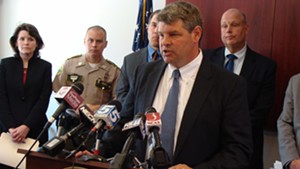





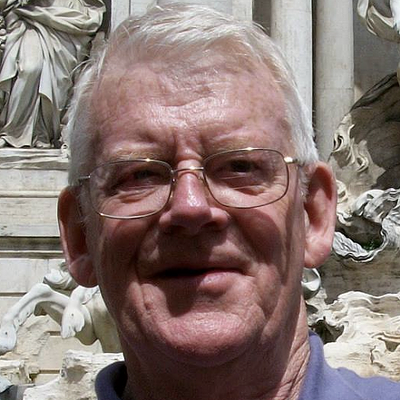
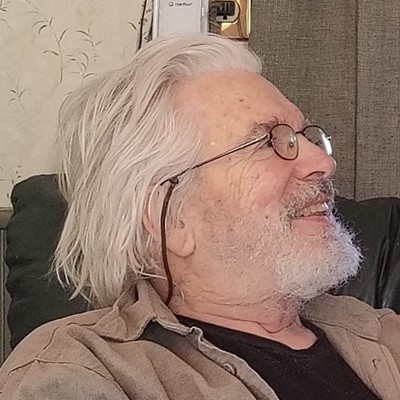
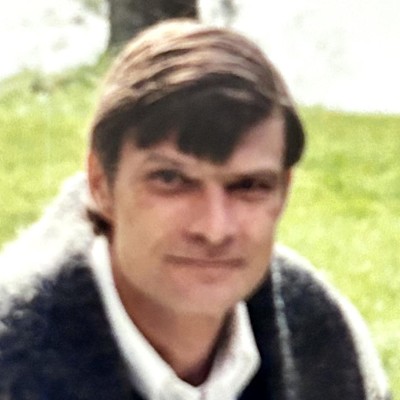
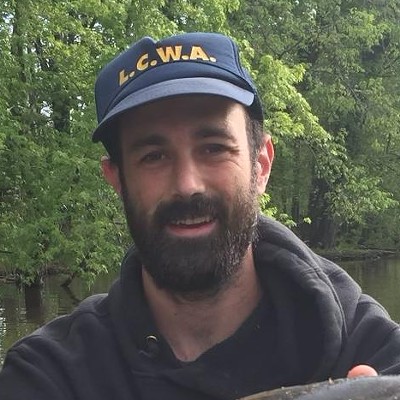
Comments
Comments are closed.
From 2014-2020, Seven Days allowed readers to comment on all stories posted on our website. While we've appreciated the suggestions and insights, right now Seven Days is prioritizing our core mission — producing high-quality, responsible local journalism — over moderating online debates between readers.
To criticize, correct or praise our reporting, please send us a letter to the editor or send us a tip. We’ll check it out and report the results.
Online comments may return when we have better tech tools for managing them. Thanks for reading.